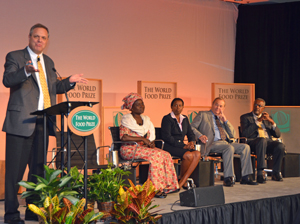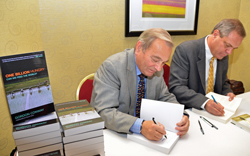 The moderator and one of the participants on the opening panel at the World Food Prize symposium Borlaug Dialogues have authored books aimed at increasing awareness of world hunger and how we can feed a growing population.
The moderator and one of the participants on the opening panel at the World Food Prize symposium Borlaug Dialogues have authored books aimed at increasing awareness of world hunger and how we can feed a growing population.
Sir Gordon Conway’s book “One Billion Hungry – Can We Feed the World?” basically is the long version of his simple answer “Yes.”
“But there’s lots of ‘buts,'” Conway clarifies. “Very simply it says that the routes forward to food security are through appropriate innovation, markets that connect small holders, through people – particularly the half billion small holders in the world, and finally through political leadership.”
Sir Gordon notes that animal protein is important for healthy young people, “but the bigger question is to what extent can we produce enough grain to feed the massive growth in livestock production?”
Listen my interview with Sir Gordon here: Sir Gordon Conway interview
Roger Thurow is Senior Fellow with the Chicago Council on Global Affairs and former Wall Street Journal reporter who dedicated his life to raising awareness of world hunger after doing a series of stories on famine in Africa in 2003. “What I saw there basically changed my career, changed my life,” he said. “Instead of moving from story to story, place to place and country to country, this is the story I really need to cover. So, now I write books about it.”
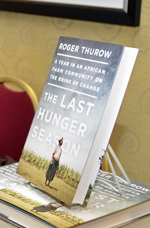 Thurow has written several books on the topic of hunger, his latest being “The Last Hunger Season” which details a year in an African farm community. The Hunger Season refers to the time between when food from a previous harvest runs out and the next harvest begins. It is actually being made into a documentary and you can find out more about it on TheLastHungerSeason.com.
Thurow has written several books on the topic of hunger, his latest being “The Last Hunger Season” which details a year in an African farm community. The Hunger Season refers to the time between when food from a previous harvest runs out and the next harvest begins. It is actually being made into a documentary and you can find out more about it on TheLastHungerSeason.com.
Roger made a great comment when I asked him about the role of GMO crops in places like Africa, noting that is important for those countries to be able to make up their own minds on the issue. “There’s a great African saying that ‘when elephants fight, the grass gets trampled’ … the elephants are the U.S. and Europe and the grass is Africa.”
Listen my interview with Roger here: Roger Thurow interview
View the World Food Prize Photo Album here.


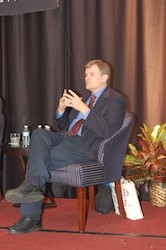
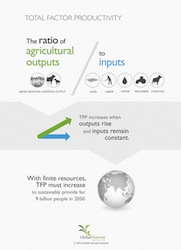
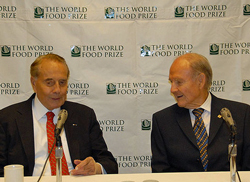
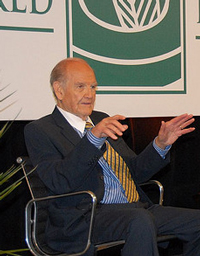
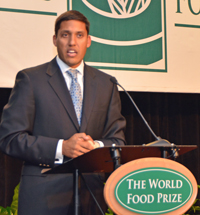

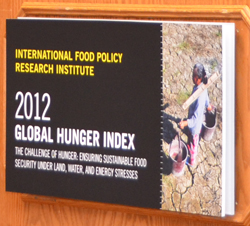
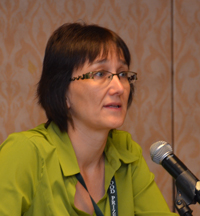



 DeLaval has
DeLaval has 
